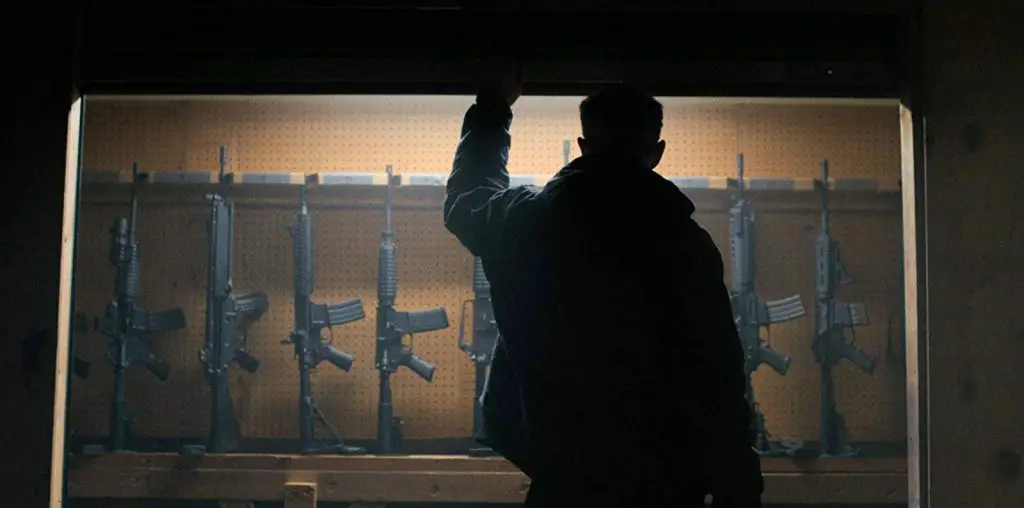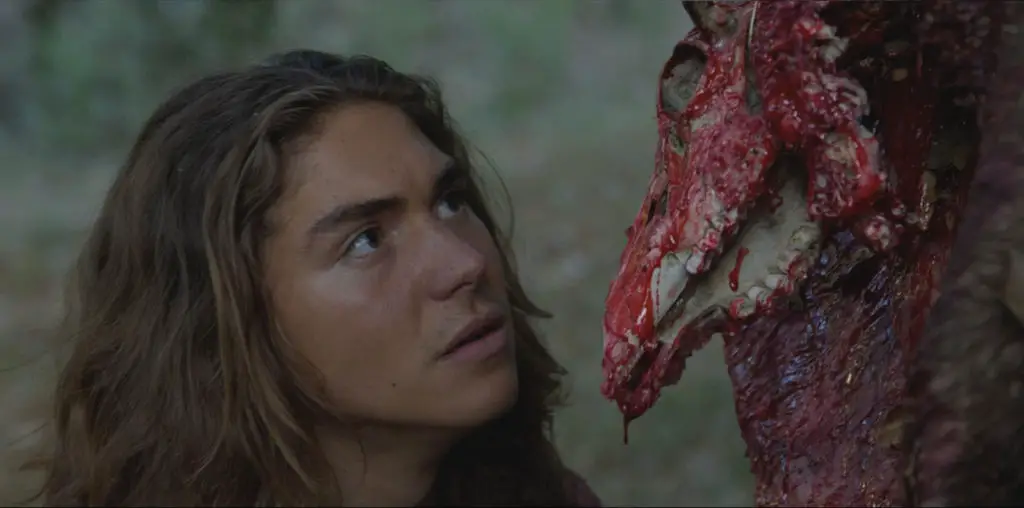
“In practice, everywhere you look, democracy is in trouble.” Uttered within the first couple of minutes of Astra Taylor’s documentary What Is Democracy? here is a phrase that resonates. It’s one we’ve heard before. The plight of a system purportedly governed by the people is a frequent topic of conversation in national news outlets and a point of contention in general sociopolitical discourse. These days, the weight of those nine words is a lot to bear. We feel it amidst the Trump administration’s unyielding gov’t shutdown in order to build a U.S. border wall—anti-immigration rhetoric similarily echoed within the European refugee crisis—and the subsequent peril it presents to marginalized communities and minorities everywhere.
Democracy is in danger, but what is democracy today, exactly? So poses the burning question at the heart of this documentary. From ancient to modern day Greece and in a trek across the States, Taylor pursues a comprehensive explanation for one very loaded question. What she uncovers is what makes What Is Democracy? the must-see documentary of the decade.
Taylor first got the idea to make the film after hearing about the 2011 activist resistances of Egypt, Turkey, and the United States. Legendary locations like a number of these aforementioned places are visited in this piece, providing a backdrop brimming with history. From the archaeological site where Plato’s Academy once stood in Athens to inner-city high schools in Miami, the viewpoints of a varied range of individuals is adeptly captured. It’s extraordinary how many perspectives are characterized in this piece. Assessing the quality of the end result analytically, the collection of testimonies framed by scenic backgrounds is the lifeblood of the story.
A U.S. Senator who speaks candidly about minority underrepresentation in the highest branches of government, a surgeon who links the high numbers of homicide victims he treats at work to income disparity, a refugee who furiously relays the account of a seven-year-old being raped at a border camp, an ex-con who doesn’t understand why his second chance of life isn’t really a chance at all and an American philosopher championing for racial justice are among the number of voices who appear in the documentary.

“…they tie into the theme of necessary communal discussions about the concept of democracy.”
They, among others, each communicate a line of thought that resonates with the rational viewer. Explicitly, each account attempts to answer the why and the how behind society’s most prevalent, pressing problems at large. On a broader note, they tie into the theme of necessary communal discussions about the concept of democracy.
What Is Democracy? takes those of us keenly watching back to the times of Plato himself, as historians pictured illustrate the philosopher’s beliefs that democracy leads to tyranny, stemming from extreme class divides which root in the very nature of human greed. As the rich become richer at the expense of the poor, the poor then suffer enough to turn to the first leader who promises them that he will bring them to successfully conquer their wealthy adversaries, or so we are reminded was Plato’s doctrine.
For all intents and purposes, this is by no means an opinion-free take on a megalithic discussion. Taylor’s form of journalism isn’t totally objective, as she sets out from the beginning to continually bring attention to one over-arching theme: economic inequality and the role it plays in the inevitable detriment of society ran by the people, for the people. What Is Democracy? alludes to possibilities reaching beyond the limitations of the film’s moniker; like, could democracy as it currently exists be nothing more than a thinly veiled prerequisite to modern-day tyranny?
Still, to Taylor’s deserving credit, bias within this picture is valiantly minimized. We see this to be true from the get-go as she threads in the POV of those on opposite ends of political arguments. Trump supporters parroting reasons for building a wall to “make America great again” and European citizens who have turned a blind eye to the plight of the refugees in favor of “retaining cultural identity” all make an appearance in one woman’s quest for answers.

“…economic inequality and it’s role in the inevitable detriment of society ran by the people, for the people.”
On a production level, the film is moving because of its simplicity. Opening with shots of classical art, accompanied by a stirring score, as a voiceover narrates a tale of historical relevance, the documentary serves up a finely crafted blend of intrigue by marrying the old with the new. Figure in how frames subtly merge into another, glinting with rays of significance, as a scrutinization of democratic fallacy revolves. Comparable to a carousel ride where exhilaration increases with speed, a call to action with every interview featured grows within the propelling viewing experience.
Critically speaking, however, What Is Democracy? is not without its flaws; the largest being the size and scope of the undertaking. Context is critical to clarity. What Is Democracy? stumbles over itself when it comes to communicating numerous personal accounts both clearly and quickly. Faces, names and opinions blur together in an almost jarring way, leaving little time to swallow what each person has to offer. So lies the underbelly of a hypothetical carousel that overwhelmingly has no off button. Is this the calculated outcome of a masterful sleight of editing hand? Or the unintended consequence of one director’s quixotic expectation for a project impossible to quantify?
Still, what surpasses the drawbacks is what makes this take on a troubled sociopolitical climate special. Taylor’s mission with this film—to answer the unanswerable—is brave. Where it shines most is in how concise, clear and comprehensive each main idea is relayed (while doubly acknowledging how much work must have gone into this undertaking). It’s no secret watching it what the journalist thinks of today’s world – that we as people are not self-ruled but mainly governed by finance. Also obvious is how Taylor communicates through her interviewees that capitalism (and the rule of money overwhelming all) in the U.S. has become society’s very downfall (and can we really claim she’s wrong?).
But let’s evaluate the target audience for this work. Is it feasible to say that this film could reach beyond progressive viewers? Could it influence those who aren’t interested in investigating a capitalist society and/or open to entertaining the idea of redesigning the way a broken government works? That’s about as disconcerting to answer as the question: “What is democracy today?”
Taylor’s take on the topic is multi-layered, and one that if you don’t pay close attention to, you might miss. But once defined, can democracy ever live up to its promise? That’s something you’ll need to watch What Is Democracy? in order to figure out.

What Is Democracy (2018) Written and Directed by Astra Taylor. Starring Wendy Brown, Silvia Federici, George A. Papandreou, Cornel West.
9 out of 10 stars


